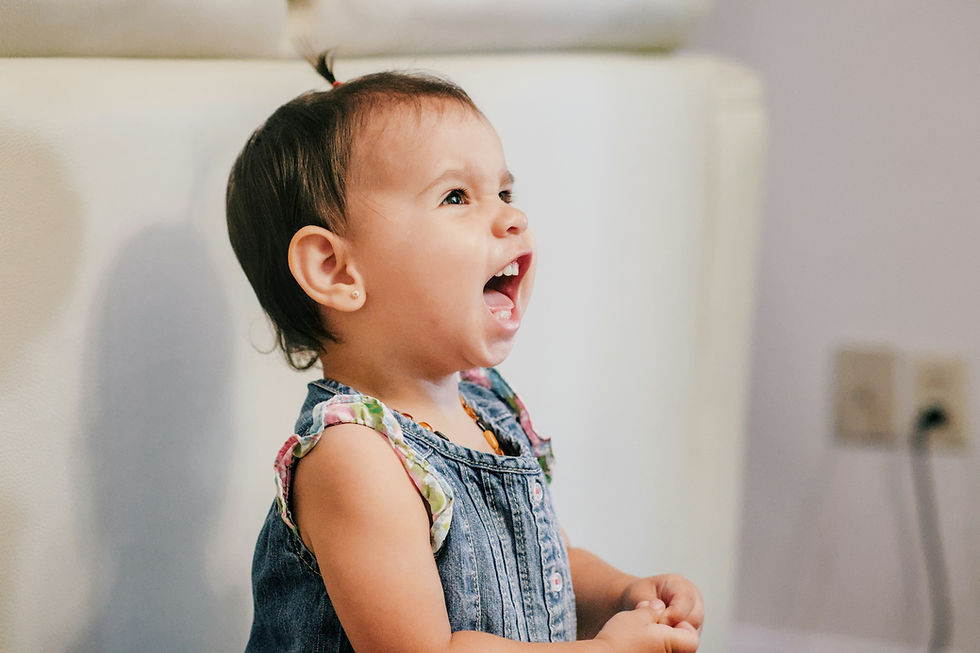The Emotional Life of Toddlers: A Behavior Guide for the People Who Love Them
- Sarah

- Aug 15, 2025
- 2 min read
“The toddler’s struggle is to find a balance between dependence and independence.” — Alicia Lieberman
If you’ve ever watched a toddler sob because you helped with the sock they just asked you to help with, you’re not alone. If your toddler bursts into tears after a joyful playdate—or insists on doing something themselves only to collapse in frustration—you are living in the complex, brilliant, bewildering world of toddlerhood.
Toddlers are beautiful, tiny humans with very real emotions who don't yet have the words or regulation skills to express them. What we often call “challenging behavior” is always a form of communication. In this series, we’ll explore what those behaviors are really telling us—and how to respond in ways that support your child and yourself.

🧠 A Brain Under Construction
Toddlerhood is one of the most dynamic periods of brain development in the human lifespan. Between ages 1 and 3, a child’s brain grows to about 80% of its adult volume, forming millions of new neural connections every second. It’s not just growing—it’s reorganizing.
This means toddlers are constantly processing new sensory input, testing limits, learning how emotions work, and experimenting with independence. The emotional outbursts, rapid mood swings, and clinging moments? They’re not signs that something is wrong with your toddler—or with you. They’re part of the neurological and emotional work of becoming a person.
❤️ Behavior Is Communication
Tantrums, biting, yelling “no,” refusing to leave the park, wanting to be held all day—they might all look different on the outside, but underneath, they’re doing the same thing: telling us something.
Maybe your toddler is overwhelmed. Maybe they’re unsure of a new routine, or they’re struggling with the loss of connection when you set a limit. Maybe they simply don’t yet have the brain structures to pause, think, and choose a calmer response.
The good news? You don’t have to have perfect responses. You just need to see the behavior with curiosity—to pause, wonder, and stay connected.
👩👦 For the Toddler-Lovers
This series isn’t just about toddler behavior. It’s about the adults who show up—every day—to soothe, guide, and survive the storm. Parenting through toddlerhood is exhausting. It’s emotional. It’s often isolating. That’s why each post in this series will include insight not only into what your toddler needs—but into what you need to stay grounded and connected.
You are not alone, and you are not doing it wrong.
📚 What’s Coming Next
In the coming weeks, we’ll explore common toddler behaviors through a developmental and relational lens, including:
Tantrums & big emotions
Power struggles & the need for autonomy
Clinginess & separation anxiety
Aggression (hitting, biting, throwing)
Sleep and transitions
Each post will offer gentle guidance, reflection prompts, and practical tools rooted in early relational health—and always, always with the knowledge that toddlers aren’t "misbehaving"… they’re becoming.
Want each post delivered to your inbox?







Comments